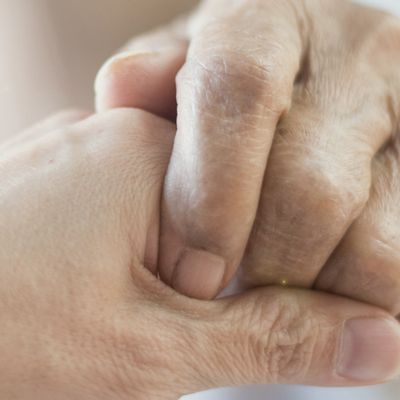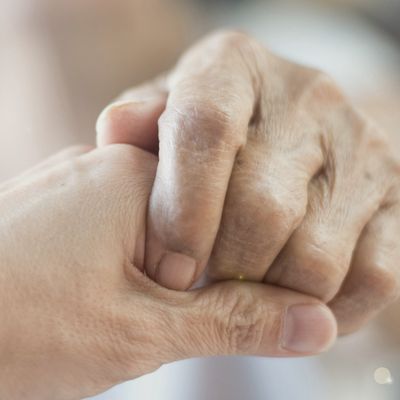

How To Spot The Signs Of Dementia
It Affects Women More
“Nearly two-thirds of people with dementia are women, and women over 60 are nearly twice as likely to develop Alzheimer’s as they are to develop breast cancer. One study also found that women tend to accumulate more amyloid plaques in their brains than men, which is thought to be the main culprit in the development of Alzheimer’s. Moreover, once diagnosed with Alzheimer’s, women decline at almost twice the rate of men. Science has identified nine risk factors that contribute to the risk of dementia. These include mid-life hearing loss (responsible for up to 9% of the risk), failing to complete secondary education, smoking, failing to seek prompt treatment for depression, physical inactivity, social isolation, high blood pressure, obesity and type 2 diabetes.” – Sara Davenport, author of Reboot Your Brain
Don’t Confuse It With Symptoms Of Menopause
“For women, the hormonal changes associated with the menopause can give rise to brain fog, which is not the same as dementia and entirely reversible. Brain fog is not a disease or disorder – it is a sign that something is amiss, such as a hormonal imbalance. Symptoms include loss of mental clarity, difficulty concentrating, focusing and paying attention, problems with memory and learning and word-finding issues. The memory issues associated with dementia, however, are characteristically different. It’s important to see a doctor if you experience disorientation about where you are, or what time of day it is, become lost in a place you’ve been familiar with for years, or repeat the same story without realising it.” – Sabina Brennan, neuroscientist and psychologist
Alzheimer’s Is The Most Well-Know Form Of Dementia…
“Early Alzheimer's symptoms often include difficulty remembering times and dates, and taking in new information, such as learning to do something new. You may also go on to forget the names of familiar faces and places and struggle to find the right words when trying to say something. There may be signs of changes in behaviour: as you lose confidence and find day-to- day life hard work, you may become withdrawn and lose interest in your usual activities. As the condition worsens, you can find it difficult to plan and make decisions, can easily become confused, and become anxious which can lead to agitation. Understandably, these changes in feelings and behaviour can cause a lot of distress for a person and can put them at greater risk of depression.” – Fran Vandelli, dementia lead at Bupa Care Services
…But There Are Five Common Forms
“Dementia affects people in different ways, particularly as there are over 200 subtypes of dementia that we’re currently aware of. The five most common are Alzheimer’s disease, vascular dementia, dementia with Lewy bodies, frontotemporal dementia and mixed dementia. Although there are different diseases which can cause dementia, generally the development of symptoms is due to the abnormal build-up of proteins in the brain which causes nerve cells to function less efficiently and eventually die. As the nerve cells die, different areas of the brain shrink, leading to the brain functioning in a different way.” – Bernadette Mossman, healthcare director at Vida Healthcare
There Are Four Main Symptoms
Luca Rado, founder of The Live In Care Company, explains…
1. DIFFICULTY PERFORMING BASIC TASKS
You may notice you or a loved one is struggling with tasks they used to have no difficulty with previously. This may be something such as maintaining their personal hygiene or cooking a meal. When someone loses the ability to perform basic tasks that they used to perform well, this can sometimes be a sign of dementia.
2. MEMORY LOSS
Memory loss is probably the most well-known symptom of dementia. Often in Alzheimer’s, the individual may struggle with short-term memory. For instance, they may forget to lock the front door or turn off the oven. They may lose things more frequently and forget someone’s name. In other dementias, such as vascular dementia or Lewy body disease, memory loss may not be an early symptom of the disease but rather one that develops later on. Memory naturally worsens as we age, so it is important not to jump to the conclusion that the person with memory difficulties has dementia. Often someone with dementia will not just show memory difficulties but they will also have additional symptoms from this list.
3. LANGUAGE PROBLEMS
Another way to recognise dementia is a loss in communication ability. This can be with both speech production and understanding. You may find that someone is struggling to follow a conversation or is repeating themselves often. In some cases, people may struggle to name items correctly or may forget the word that they are looking for.
4. ATTENTIONAL DIFFICULTIES
Dementia may cause problems with attention, such as the ability to focus and sustain that focus. Someone with signs of dementia may show a lack of concentration or find themselves getting distracted easily. Attention can also impact a person’s ability to learn and recall information so memory can be affected as a result.
However, It Can Still Be Tricky To Spot
“We must remember that, regardless of the type of dementia diagnosed and the part of the brain affected, everyone will experience dementia in their own unique way. It can therefore be tricky to spot the signs and symptoms early on as they can vary from person to person. Although these symptoms may not seem significant, some people who experience ‘mild cognitive impairment’ (MCI) will go on to develop a form of dementia. It’s therefore crucial that these symptoms are taken seriously and you book an appointment with a GP to investigate them further and confirm if it’s likely they could develop into dementia.” – Bernadette Mossman
It's Different For Everyone
“Dementia is different for everyone, and the symptoms vary depending on the area of your brain that’s affected and the type of dementia you have. Symptoms often start with mild memory loss, which can begin some time before dementia is diagnosed. At this stage, it’s often called MCI. Common symptoms include memory loss, lack of concentration, feeling confused, mood changes, losing the thread of conversations, and difficulty finding the right words when you’re talking.
“Not everyone with MCI develops dementia but, for some people, these problems can worsen over time. Other symptoms that can develop are difficulty doing daily activities or losing interest in doing them, finding social situations difficult or losing interest in engaging in them, difficulty managing moods and emotions, seeing or hearing things that aren’t there (hallucinations), communication problems with speech and language, and sleeping problems. Dementia symptoms gradually become worse over time. The later stages can be distressing for people with the disease and their carers and relatives. At this stage, symptoms become more severe. Full-time care is usually needed to help with moving, eating and other daily activities, and communication skills may be entirely lost.” – Dr Rhianna McClymont, lead GP at Livi
When To See A Doctor About Dementia
“If you or someone you know is experiencing memory loss, it’s essential to see a doctor straight away. There are many possible causes of memory loss but, if it is dementia, an early diagnosis can help you get the proper treatment and support. In some cases, an early diagnosis and treatment can also help slow down the progress of symptoms.” – Dr Rhianna McClymont
“Don’t ignore initial signs and hope they will go away, or that it will get better, because it won’t. Make an appointment to see your doctor and get as early a diagnosis as you can. You may be referred to a specialist consultant – neurologists, geriatricians or old age psychiatrists are all qualified to carry out physical and mental tests. You may also be offered a brain scan to identify changes – CT, CAT or MRI scans will show changes in brain structure, while SPECT or PET scans show changes in brain activity. The Imperial Memory Unit at Charing Cross Hospital in west London can also carry out the Addenbrooke’s cognitive exam (ACE), which is useful in the detection of cognitive impairment.” – Sara Davenport
Getting A Dementia Diagnosis
“There are many other causes of mild memory loss – including stress, anxiety and depression, certain medication and other health conditions. The GP will go through some simple procedures to rule these out first. These procedures might include mental ability tests looking at your memory and thinking skills, blood tests, asking about your symptoms and medical history and talking to someone close to you about your symptoms.
“It’s a good idea to take a close friend or relative along to the appointment – the doctor will ask questions about how your symptoms affect your daily life and their input can be helpful. If the GP is unsure whether you have dementia, they’ll refer you to a specialist. This might be a geriatrician (a physician who specialises in elderly care) or a specialised memory clinic.
“It can take several months to get a confirmed diagnosis and this can be a stressful time if you’re having tests or supporting someone else having them. The GP can recommend information and support through organisations like Dementia UK to help you through the process and come to terms with the diagnosis.” – Dr Rhianna McClymont
Getting Treatment For Dementia
Dr Rhianna McClymont explains…
There’s no cure for dementia, but there is a range of treatments that can help to reduce symptoms. The treatment plan will depend on the type of dementia, what stage it’s at, the signs and how severe they are. The main types of treatment for dementia are…
MEDICATION
Acetylcholinesterase (AChE) inhibitors are prescribed by specialists and help brain cells communicate with each other. Other medicines that the doctor may recommend include antipsychotics to help treat challenging behaviour and antidepressants to treat depression and anxiety.
COGNITIVE THERAPY
This can be very effective to improve memory and cognitive skills and may involve group activities and exercises or one-to-one help with everyday tasks.
REMINISCENCE THERAPY
This involves talking about your past and life story using meaningful objects and pictures as prompts. It can be a great way to help boost moods and emotional wellbeing.
Finally, Don’t Panic
“There are a multitude of ways to support people living with dementia and the earlier someone is diagnosed, the quicker the right care and support can be delivered to them. Diagnosis also supports research into the causes of dementia and the development of new treatments. The more people that are diagnosed, and the earlier it’s caught, the better we’ll understand this collection of symptoms and how to treat them.” – Bernadette Mossman
Features published by SheerLuxe are not intended to treat, diagnose, cure or prevent any disease. Always seek the advice of your GP or another qualified healthcare provider for any questions you have regarding a medical condition, and before undertaking any diet, exercise or other health-related programme.
DISCLAIMER: We endeavour to always credit the correct original source of every image we use. If you think a credit may be incorrect, please contact us at info@sheerluxe.com.